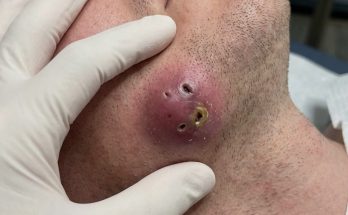Our bodies are constantly at work, performing countless tasks that keep us alive, energized, and healthy.
Among these tasks, one of the most essential is the removal of toxins.
Every day, the body encounters substances that, in high amounts, can be harmful.
These include waste products from metabolism, environmental pollutants, and chemicals from food or drinks. Fortunately, the human body is equipped with a remarkable natural detox system that works tirelessly to keep us in balance and free from harmful buildup.
At the center of the body’s toxin removal process are the liver and kidneys. The liver acts as the primary filtration hub. It receives blood carrying nutrients and potentially harmful substances from the digestive system. Inside the liver, specialized cells work to neutralize and transform toxins into forms that can be safely excreted. Some of these substances are converted into water-soluble compounds that the kidneys can easily remove through urine. Others are packaged into bile, which passes into the digestive tract and eventually leaves the body through feces. This sophisticated system allows the body to manage potentially harmful substances efficiently, without causing stress to other organs.
The kidneys play an equally critical role. They continuously filter the blood, removing excess salts, water, and soluble toxins. Each kidney contains about a million nephrons, which are tiny filtering units. Blood flows into these nephrons, where waste products are separated from essential nutrients. The filtered waste is concentrated into urine, which flows through the ureters into the bladder before being eliminated. This process not only removes toxins but also helps maintain fluid and electrolyte balance, which is vital for healthy cellular function and overall well-being.
In addition to the liver and kidneys, the skin and lungs provide natural detox pathways. The skin, the largest organ of the body, releases toxins through sweat. While sweating primarily helps regulate body temperature, it also eliminates trace amounts of chemicals such as heavy metals. Regular physical activity can enhance this process by promoting circulation and increasing sweat production. The lungs, on the other hand, expel volatile compounds through exhalation. When we breathe, carbon dioxide, a byproduct of metabolism, is removed from the bloodstream, while small amounts of other airborne toxins may also be released.
The digestive system contributes in a complementary way. Fiber-rich foods aid the body in expelling waste efficiently. Insoluble fiber adds bulk to stool, helping toxins move through the digestive tract more quickly, while soluble fiber binds to certain chemicals, facilitating their removal. Additionally, a healthy gut microbiome—the community of microorganisms living in the intestines—plays a crucial role in processing some substances that could otherwise become harmful. A balanced diet rich in vegetables, fruits, whole grains, and fermented foods supports these beneficial microbes and enhances the body’s natural detox functions.
Hydration is another key factor in supporting toxin removal. Water acts as a carrier for many waste products. Adequate water intake helps the kidneys efficiently flush out toxins and prevents the accumulation of waste in the bloodstream. It also aids in digestion, supports skin health, and maintains cellular functions. Even mild dehydration can slow down these processes, emphasizing the importance of drinking sufficient fluids throughout the day.
The body’s natural detox mechanisms are continuous and adaptive. They adjust to the types and amounts of toxins encountered. When a person consumes a balanced diet, exercises regularly, and avoids excessive exposure to harmful chemicals, the liver, kidneys, skin, and lungs can perform their tasks effectively without strain. This synergy between organs ensures that toxins are neutralized and expelled in a safe, controlled manner, protecting vital systems and maintaining overall health.
Interestingly, the body’s ability to detoxify can be influenced by lifestyle choices. Exposure to excessive alcohol, processed foods, or environmental pollutants can increase the workload on the liver and kidneys. Over time, this may reduce their efficiency and increase susceptibility to illness. On the other hand, practices such as eating antioxidant-rich foods, staying hydrated, engaging in regular physical activity, and getting sufficient rest can support the body’s natural detox pathways. Antioxidants, for example, help neutralize free radicals, which are unstable molecules that can damage cells and contribute to toxin buildup.
Sleep is another often overlooked but essential factor in natural detoxification. During deep sleep, the brain undergoes a cleansing process known as the glymphatic system. This system helps remove waste products, including metabolic byproducts, from the brain tissue. Consistent, high-quality sleep allows this process to function optimally, reducing the accumulation of potentially harmful substances in the central nervous system and supporting cognitive health.
In addition to daily habits, certain natural foods can support the body’s detox functions. Cruciferous vegetables such as broccoli, cauliflower, and Brussels sprouts contain compounds that promote liver detoxification enzymes. Citrus fruits provide vitamin C, which supports liver function and overall antioxidant defense. Green tea contains polyphenols that may assist in neutralizing toxins and supporting liver health. While these foods are not miracle cures, incorporating them into a balanced diet can enhance the body’s innate ability to manage waste and protect against harmful substances.
Ultimately, the human body is equipped with an impressive array of natural systems to remove toxins. The liver transforms and neutralizes harmful substances, the kidneys filter and excrete waste through urine, the skin and lungs provide additional elimination pathways, and the digestive system ensures efficient waste removal. When supported by healthy habits, these systems work harmoniously to maintain balance and promote overall wellness.
Recognizing and respecting the body’s natural detox mechanisms is empowering. Instead of relying on extreme or unverified detox programs, supporting the body through hydration, balanced nutrition, regular exercise, and adequate sleep allows these sophisticated systems to function effectively. The body has evolved to manage and remove toxins continuously, and providing it with the right environment ensures that it can perform this vital role efficiently.
In conclusion, the removal of toxins from the body is a complex, multi-organ process that occurs naturally every day. By understanding and supporting this process through conscious lifestyle choices, we can promote optimal health and prevent the accumulation of harmful substances. The liver, kidneys, skin, lungs, digestive system, and even the brain each contribute to this remarkable detoxification network. Embracing natural methods of supporting these systems allows the body to perform its essential functions effortlessly, helping us maintain vitality, clarity, and well-being. The human body’s ability to remove toxins is a testament to the elegance of natural processes and serves as a reminder that good health often begins with supporting what our bodies already do best.



